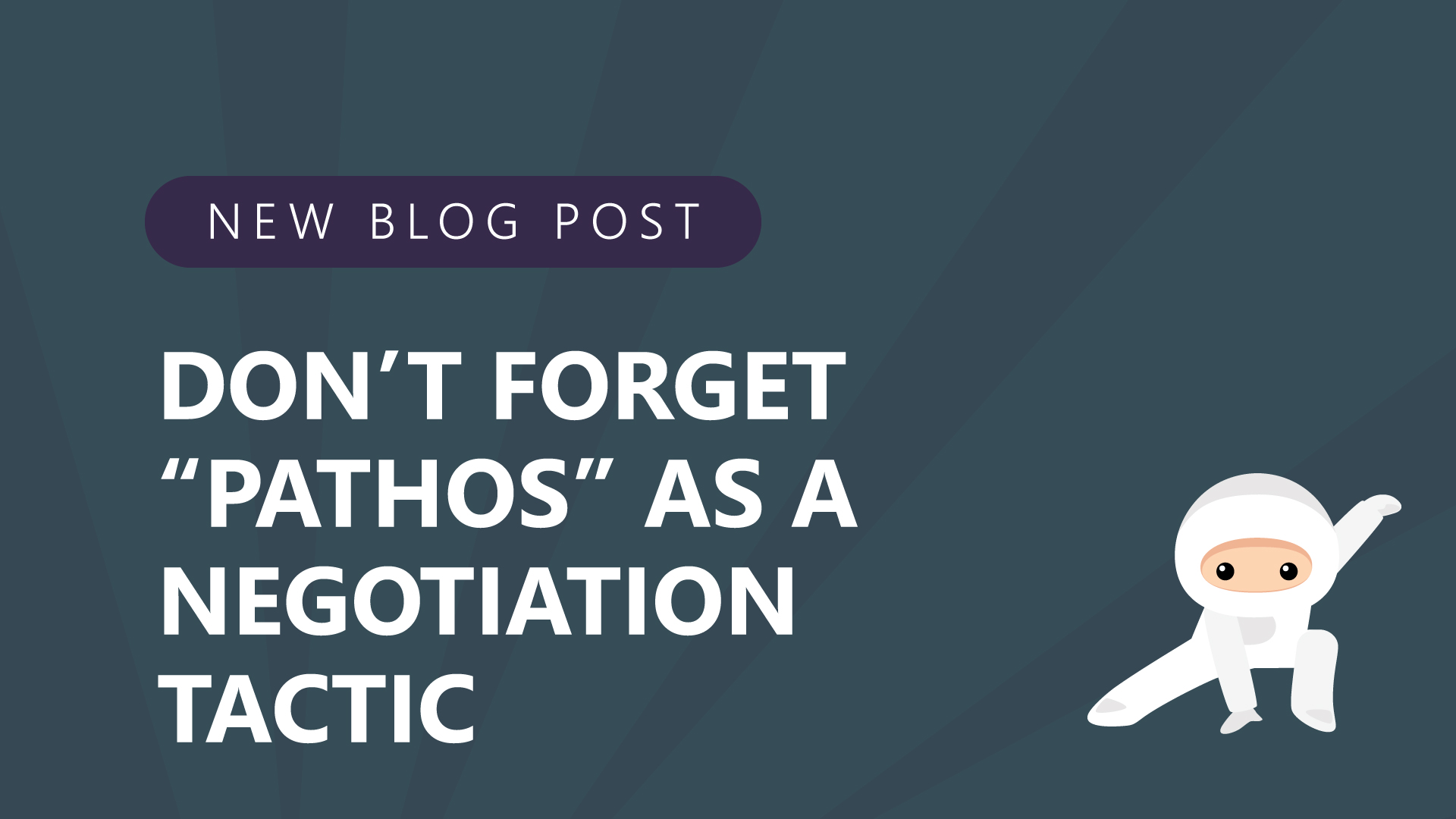In his book, “Negotiation Hacks: Expert Tactics To Get What You Want,” Simon Rycraft talks about some of Aristotle’s principles of persuasion. What are those three principles?
- Pathos: Pathos is the application of emotion. People who are more passionate can be more persuasive, right? When someone gets excited, it prods on your emotions and will often get you excited.
- Ethos: Ethos refers to your reputation. If you’ve worked with someone before and brought them good deals, they’ll trust you more. But if people don’t know you, they are naturally distrustful. But you can build a reputation quickly if you have the right qualifications, shared connections, and other social proof.
- Logos: Logos AKA “Logic” comes across when you provide data points, statistics, etc. in a presentation. Without it, you don’t seem as credible.
Simon notes that most people in procurement have a logical side. They likely have some social proof and the right qualifications to seem credible. But a lot of people—if not most—fail when it comes to incorporating emotion into their negotiation conversations.
They can’t seem to bridge the gap between logos and pathos. When they can’t tie someone’s emotions to the decisions that need to be made, they struggle. So what can be done? How can someone lacking in empathy and emotion adapt? Simon shares a few thoughts.
How to integrate emotion into the conversation
Most people make decisions based on emotion that’s justified with logic—not on logic alone. Procurement people are great at portraying the logic in an argument. Simon notes that you have to control your own emotions to ensure you don’t become aggressive or emotional because you’re stressed and under time pressure.
At the same time, you must understand how your emotions can benefit you and the other person. Then you have to work to understand their emotions. You don’t know if you’re speaking to someone on a good day or bad day. Their emotional state likely has nothing to do with you. But you have to take an empathetic approach and care about what the other person is going through. Once you get past their mask and facade, then you can start connecting on a deeper level.
Understanding the pressures the company is under can go a long way. Some of that understanding can come from research on the company and the person. Or perhaps the person is brand new to the job. You can ask questions to understand how their day is going, why they’re negotiating, and why they want some concessions over others. It all comes down to being more empathetic and controlling your own emotions.
There are basic things everyone can do to keep their emotions evenly keeled. It can be as simple as having a good morning routine, getting a good night’s sleep, or drinking coffee.
The leveraging of emotion in a negotiation
If I know that the major driver of a counterparty making a decision is the fear of missing out, is it wrong to leverage that emotion? If you’re trying to decide on me versus someone else, is using fear to my benefit advantageous?
Simon believes that there are boundaries in the business world. Everything in life is based on persuasion techniques that play on your emotions—even how a grocery store is laid out. Simon’s guiding principle is to “do no evil.” But people will still use those techniques in everything that you negotiate. It’s part of the game.
To hear his full thoughts on pathos in the negotiation process—and a few other topics from his book—listen to episode #235 of the Negotiations Ninja podcast!

